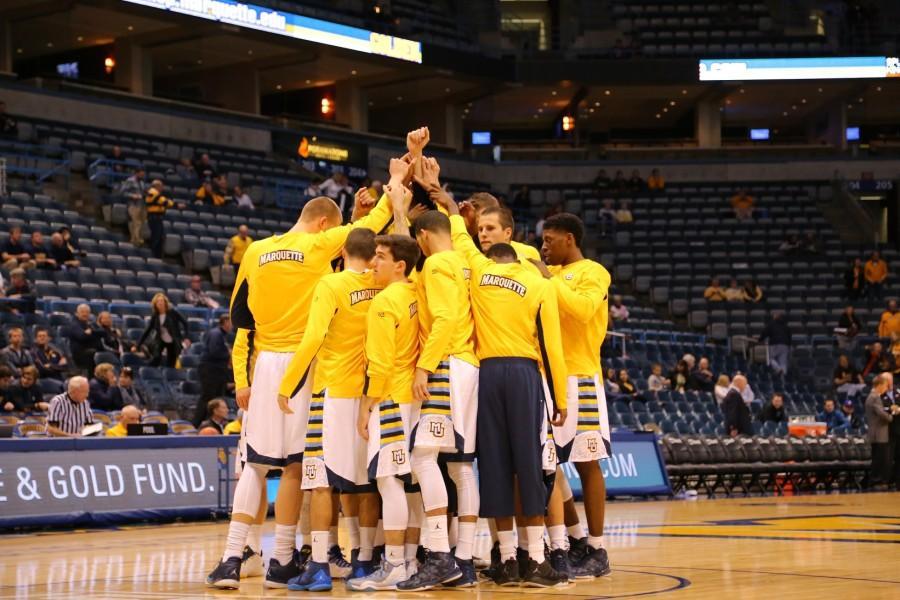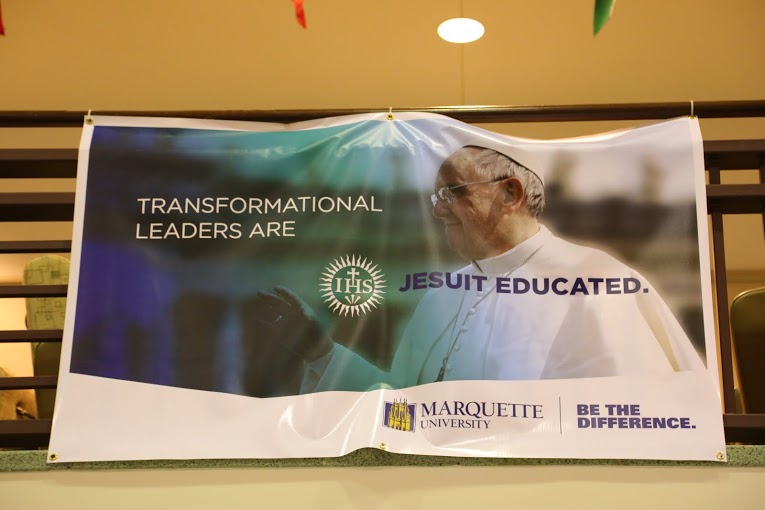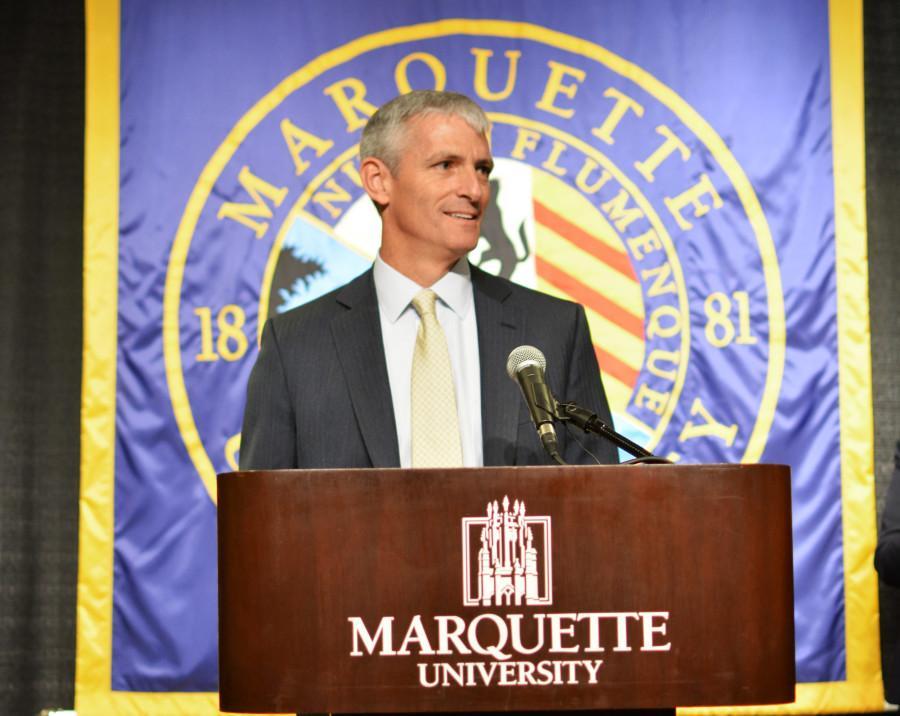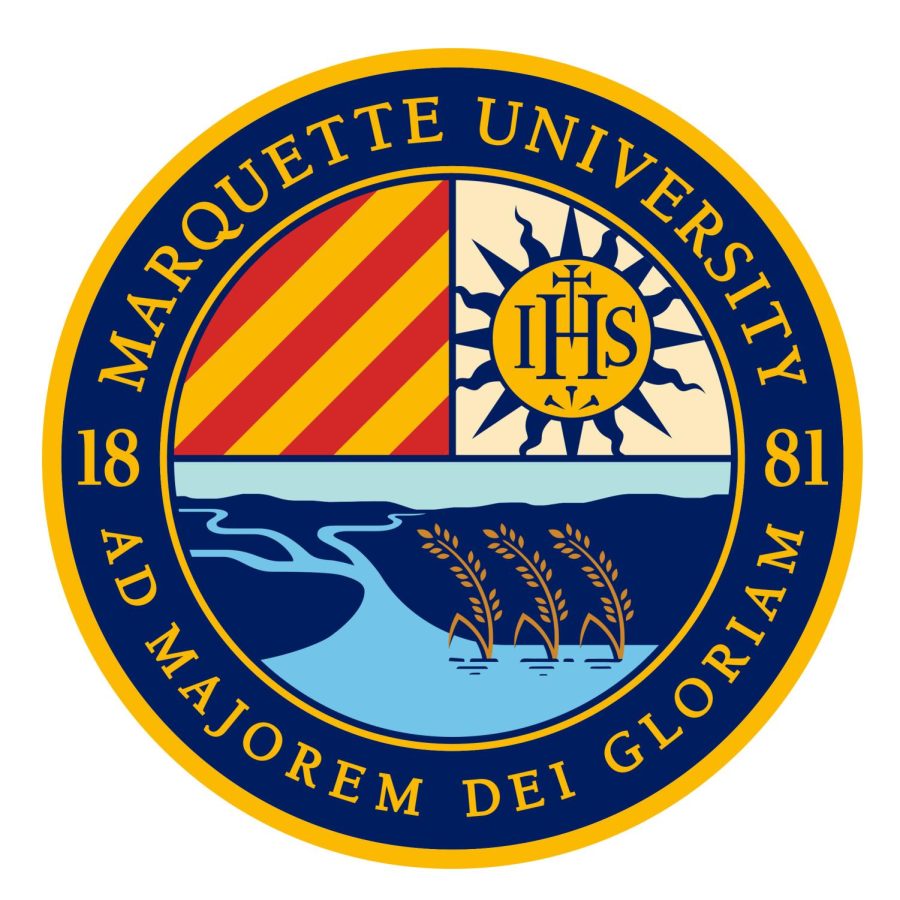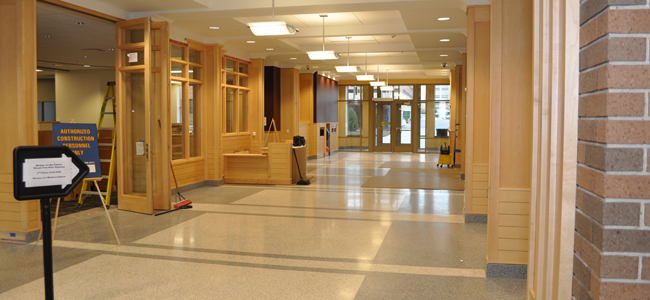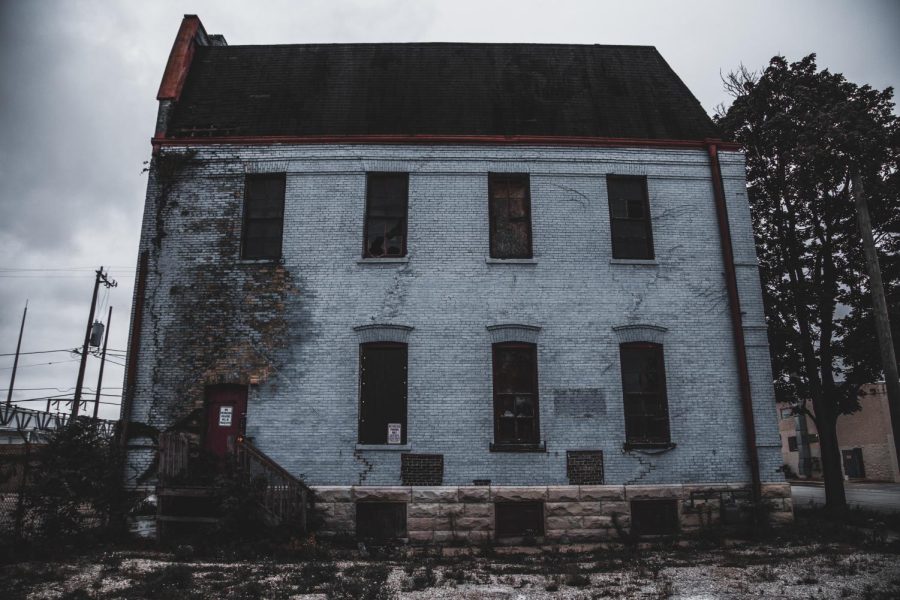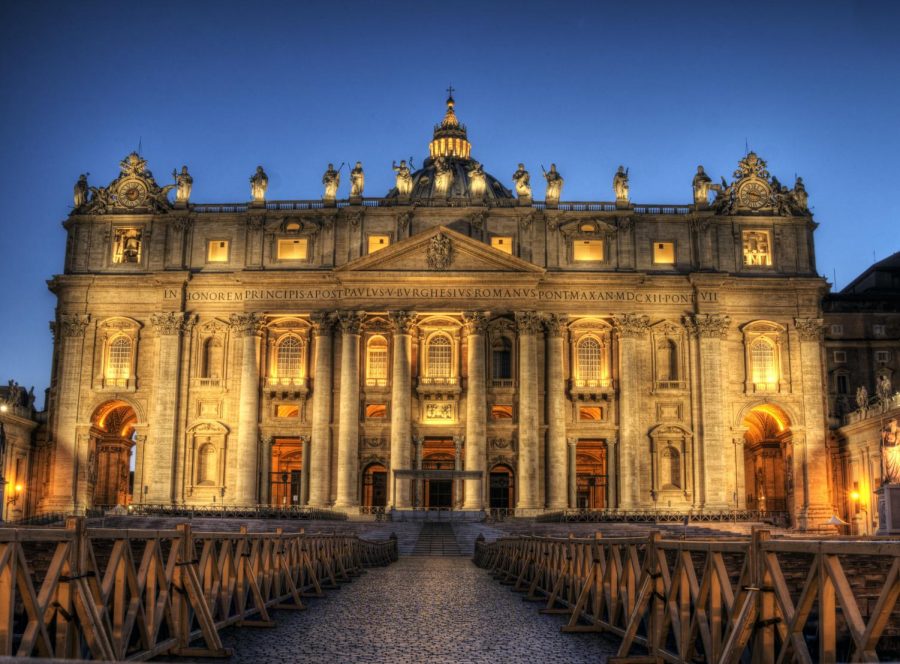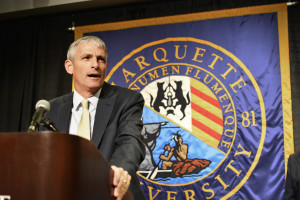
With Michael Lovell, Marquette president-elect and former University of Wisconsin-Milwaukee Chancellor, taking office Aug. 1, he will make history as the university’s 24th president and the first-ever layperson to hold the job in the school’s 133-year history.
Despite the installation of a non-Jesuit to the university’s most prominent administrative position, many of the 51 Jesuits who reside or teach at Marquette are not concerned about their future role on campus.
The Rev. Douglas Leonhardt, an associate vice president in the Office of Mission & Ministry and McCabe Hall pastoral minister, said the Jesuits will continue to play an important role at Marquette, with the construction of a new Jesuit residence a sign of the mutual commitment between the university and the Society of Jesus.
“Without a Jesuit as president, the Jesuit community is committed to having the same kind of presence as in the past — in the classrooms, residence halls, campus ministry, other areas of administration as has been evident during the past years,” Leonhardt said in an email. “Even the location of the new Jesuit community is a symbol that the Jesuits are visible at Marquette. Jesuit presence is more about the quality of presence that Jesuits bring to a university setting than about the number.”
Many Jesuits came to expect the presidential search committee’s decision to choose a layperson, especially with the number of Jesuits steadily declining. According to the Religious News Service, the number of Jesuits in the U.S. dropped from 6,616 in 1973 to 2,547 in 2013.
“It was the expectation, often times expressed in the bylaws, that a Jesuit be president of a Jesuit college or university,” Leonhardt said. “This often was when there were a greater number of Jesuits available for such a positions as well as when the presidency of a university was less complex. But in recent years we have run out of the number of qualified Jesuits for university presidencies. To have an institution flourish, it is more important that there be a qualified person, man or woman, in the top leadership role.”
After hiring the Rev. Scott Pilarz as president in 2011, Marquette’s Board of Trustees amended its bylaws to allow the university to have a lay president, provided the candidate belongs to the Roman Catholic Church.
According to the Rev. Fred Zagone, an assistant to the vice president for university advancement and Humphrey Hall pastoral minister, the religious qualification is essential to the university’s Catholic character.
“As a part of the larger Catholic community it only makes sense that our leadership believe, understand and practice that same faith,” Zagone said in an email. “In reality, one can be a very good person and not be a Catholic. At Marquette, we want both. Faith and action are two different things. I believe we are fortunate in Dr. Lovell in that he appears to have both. Any successful company has a CEO who believes in the product.”
Zagone said “only a few” alumni were disappointed with the appointment of a non-Jesuit as president, but like Leonhardt, said Marquette will “have a very viable, visible Jesuit presence on campus that will remain strong.”
Marquette joins the ranks of eight other American Jesuit colleges and universities with lay presidents by hiring Lovell. The number of laypersons leading Jesuit universities grew steadily since John Degioia became the first lay president of a Jesuit university by assuming the role at Georgetown University in 2001.
Shortly before Lovell’s appointment, Saint Louis University announced Fred Pestello, the current president of LeMoyne College, as its first-ever lay president. In turn, LeMoyne, located in Syracuse, N.Y., is expected to become the first Jesuit college or university to appoint a laywoman, current provost Linda LeMura, as president.
With the installation of Lovell at Maquette and Pestello at Saint Louis University this year, nine of the 28 schools in the Association of Jesuit Colleges and Universities will have lay presidents. In addition, 63 percent of the 194 U.S. Catholic colleges that belong to the Association of Catholic Colleges and Universities are led by laypeople.
The Rev. Michael Zeps, an associate professor of history and Cobeen Hall pastoral minister, said Lovell’s Catholic identity and prior outreach to Marquette’s Jesuit community was especially “gratifying.”
“I express a rather common sentiment among Jesuits in applauding the selection of Michael Lovell as the first lay president of MU,” Zeps said in email. “The first thing he did was to come to the Jes Res for Mass and dinner the day after the announcement …That made a great impression on us, to celebrate the Eucharist with the president-elect as one of his first semi-official functions.”
Many Jesuits were also quick to emphasize that a university is more than just its president, but rather a reflection of the campus community as a whole.
“The identity of Marquette has never been defined by just the president or some other individual but is defined by the university in its totality,” Zagone said. “This distinction has never been, nor will it be, defined by one person or even a few people. It takes the cooperation of the entire community. The role of the president is to be a strong leader of that community.”

